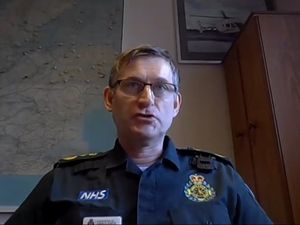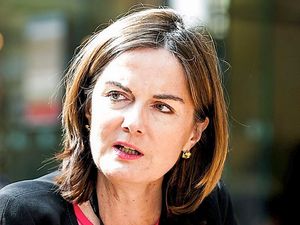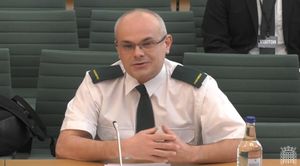Ambulance chief warns crisis will not improve in 'weeks and months ahead'
A senior official has told a Shropshire MP he cannot see the ambulance crisis improving in the "weeks and months ahead".

Daren Mochrie, chair of the Association of Ambulance Chief Executives was speaking in response to Telford Conservative MP Lucy Allan, as he gave evidence to Parliament's health and social care select committee.
The committee was questioning a number of senior health officials, and a union boss on the current crisis in ambulance response times – and about industrial action planned for Wednesday.
Ms Allan, who is a member of the committee, had raised the issue of handover delays, highlighting that West Midlands Ambulance Service (WMAS) had lost 44,000 hours while ambulances waited outside hospitals in just one month.
She also questioned Professor Julian Redhead, the national clinical director for urgent and emergency care at NHS England, over what had been done since a public warning from WMAS chief executive Anthony Marsh earlier this year when he said that the service could collapse without help.

Ms Allan said: "Anthony Marsh said at the start of the year that by September, WMAS would start to fail. I just wondered what then happened, when you get a message like that? What actions are taken that would prevent us being where we are now with members, quite understandably, saying 'no one is listening, we have to take strike action'."
Responding, Prof Redhead said: "I work very closely with Anthony because of his role nationally as well. Action has been taken. We tried to increase the number of call handlers because some of the original problems were around call handlers and making sure we can answer telephone calls, so we have increased the number of call handlers by 300 from where they were a year ago."
He added: "We have also put in more focus in terms of those handover delays, because that is what is really having the issues for both the ambulances crews themselves, because they do not want to be outside the ambulance, they want to be helping people. So we have been working with individual trusts because they have got real issues with this."
Speaking to the committee, Prof Redhead said the number one issue was discharge from hospitals, to free up space for new patients – with a specific task force set up to look at the issue.
Rachel Harrison, GMB's national secretary told the committee on Tuesday that members have been "ignored" over ambulance flow issues for years.
She said: "It's absolutely having a devastating affect on our members. Frustration, stress, burnout, exhaustion, low morale, mental health. Our members are tired going to work everyday, and, in some cases, spending the whole of their shift sat in an ambulance outside an A&E department with the same patient."

Ms Allan also asked John Martin, president of the College of Paramedics, what they would like to see done to address the issues and improve the situation.
He replied: "Talking to members, hospital handovers is right at the top of their issues. Looking at the situation report published by NHS England on December 11 there were 4,232 hours lost in one day outside hospitals and that equates to 176 ambulances – that is our members who are really struggling, because, as Rachel says, they can spend the whole of their shift outside a hospital waiting to hand over a patient.
"That has a huge impact on paramedics in the back of the ambulance, and obviously has a huge impact on the families and the patients themselves.
"We are considered world leading in our degrees in how we create paramedics and it is really frustrating that we cannot use those skills across your shift because you are waiting with one patient outside a hospital."
Ms Allan then asked if the handover issues were "the real underlying driver of tomorrow's strike".
Mr Martin responded: "We are a professional body not a trade union but in terms of what our members are telling us, the frustration is they are worn out, they are tired and they want to get back to being paramedics."
Questioning Mr Mochrie, Ms Allan asked: "In the short term do you foresee this will continue to deteriorate – this situation?"
He replied: "Yes. I cannot see how in the next few weeks and months ahead the situation will improve."





